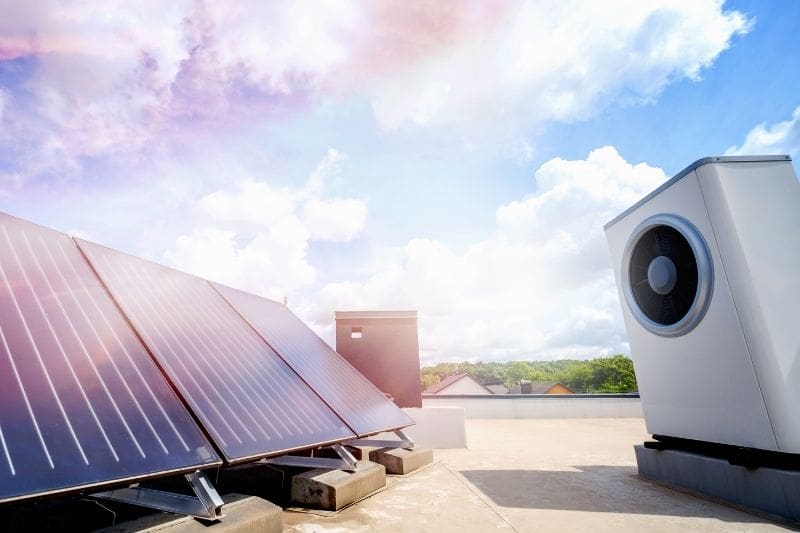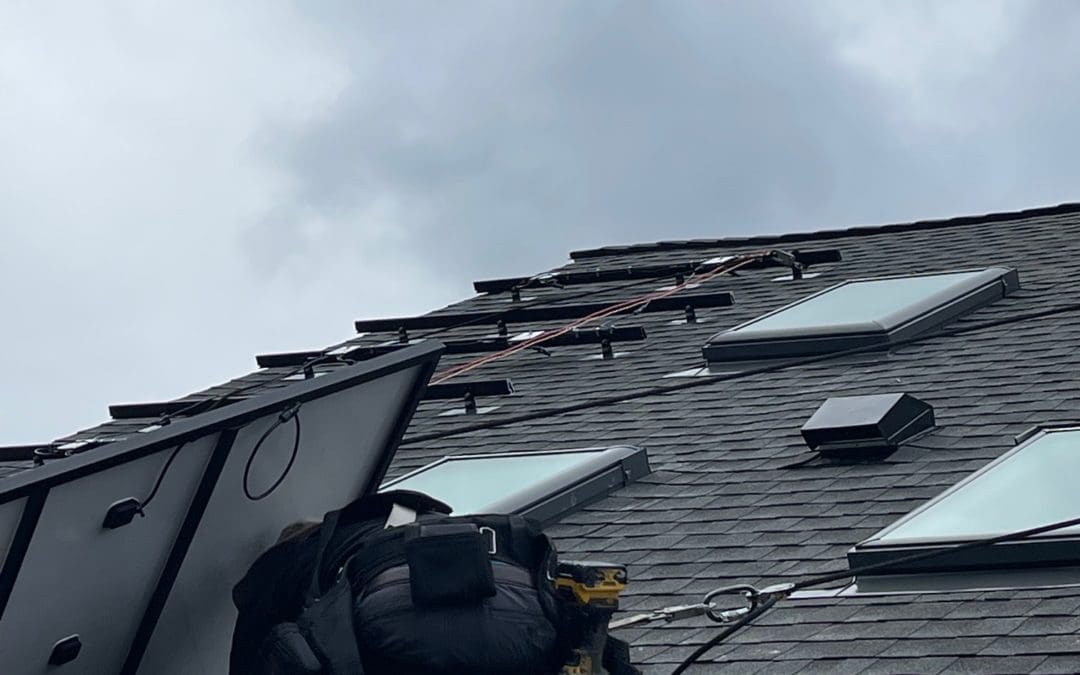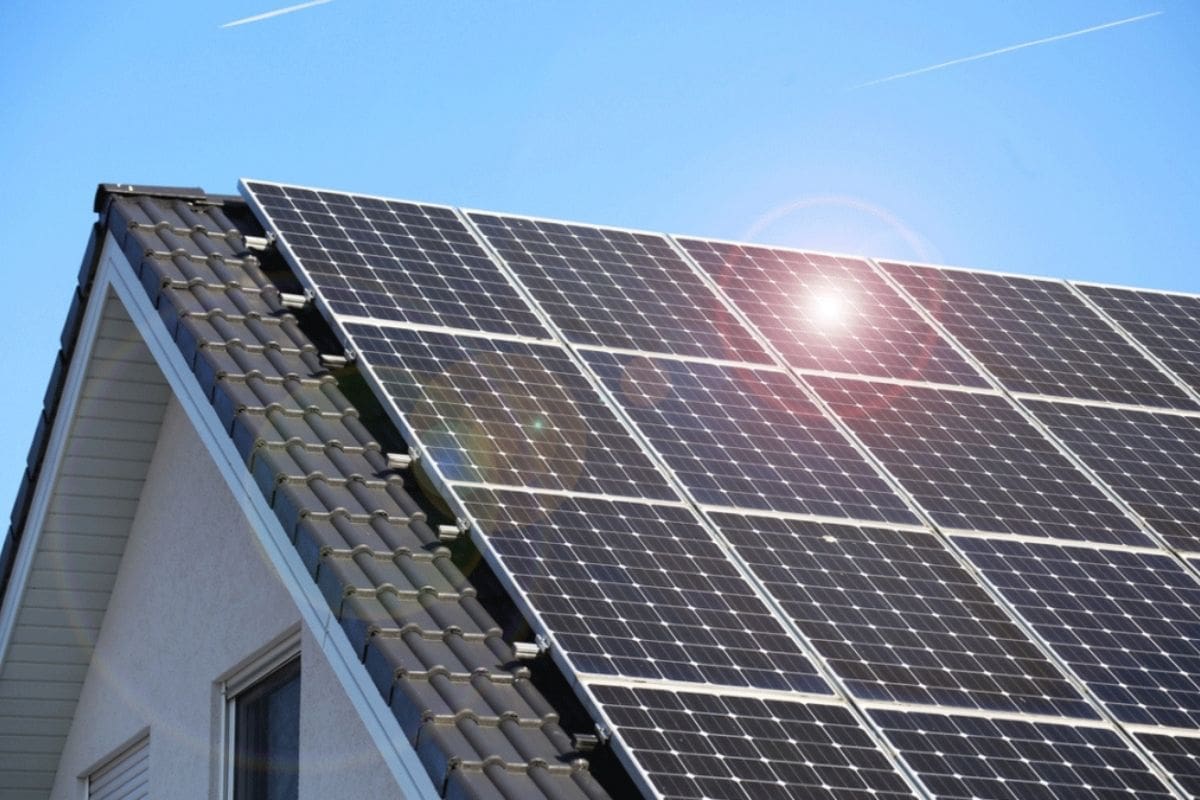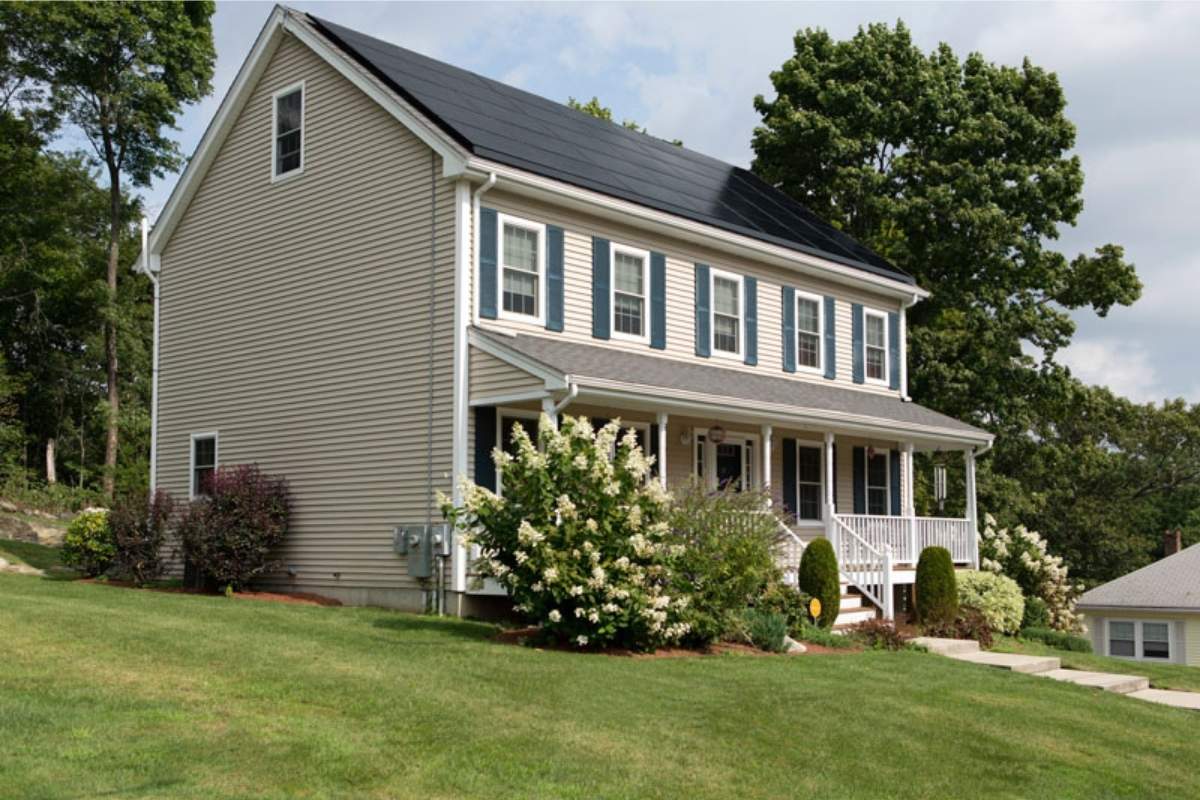As energy costs rise and the push for clean energy grows, more Massachusetts homeowners are looking for smarter ways to power and heat their homes. Two of the most effective upgrades—solar panels and heat pumps—work even better when installed together.
Pairing these technologies lets you power your home with clean energy and heat it efficiently without relying on oil or gas. Here’s why installing solar and a heat pump at the same time is one of the smartest moves you can make.
Maximize Your Energy Efficiency
Solar panels generate clean electricity, and heat pumps use electricity to heat and cool your home. When you pair them, you’re powering your heating and cooling system with energy you generate yourself—especially during peak solar production hours.
This combo maximizes your return on investment. Instead of pulling power from the grid to run your HVAC system, you use the solar electricity you’re already producing—lowering both your usage and your carbon footprint.
The Bottom Line:
Use your own clean energy to heat and cool your home more efficiently, reducing your reliance on the grid.
Lower Your Energy Bills Even Further
Heating and cooling account for a large portion of your energy bill. Heat pumps are far more efficient than traditional HVAC systems, and when powered by solar, the cost to run them can drop close to zero.
And thanks to programs like Mass Save® rebates and financing, upgrading is more affordable than ever.
The Bottom Line:
Cut heating and cooling costs dramatically—and in some cases, eliminate them entirely.
Cost Comparison: Heat Pump + Solar vs. Traditional Systems
Here’s how annual energy costs compare for typical home heating and cooling setups in Massachusetts:
| System Type | Fuel Source | Est. Annual Energy Cost | Notes |
|---|---|---|---|
| Oil Furnace + Central AC | Oil + Electricity | $3,200–$3,800 | High fuel cost, high carbon output |
| Natural Gas Furnace + AC | Gas + Electricity | $1,800–$2,400 | Moderate cost, still grid-reliant |
| Heat Pump (Grid-Powered) | Electricity (Grid) | $1,500–$2,000 | More efficient, but subject to rate hikes |
| Heat Pump + Solar | Electricity (Self-Generated) | $300–$600 | Lowest cost, especially with net metering |
Estimates based on average Massachusetts energy rates and typical system sizes.
Shrink Your Carbon Footprint
Traditional heating systems (oil, gas, electric resistance) burn fossil fuels that contribute to climate change. Solar-powered heat pumps run on 100% clean electricity, which dramatically cuts your home’s emissions.
Together, these upgrades create a cleaner, greener way to power your home—while still keeping it comfortable year-round.
The Bottom Line:
Reduce your home’s carbon emissions by switching to a zero-emission system.
Gain Long-Term Energy Independence
With solar panels, you generate your own electricity. Add a heat pump and you control how your home is heated and cooled—no fuel deliveries, no price swings, no surprises on your bill.
Add a battery system, and you can store excess solar power to use at night or during outages—making your home even more self-sufficient.
The Bottom Line:
Protect yourself from rising energy costs and gain more control over your energy future.
Simplify Your Home’s Energy System
When you install solar and a heat pump at the same time, you streamline your entire energy setup. One smart, integrated system to handle your electricity, heating, and cooling—all controlled with apps and smart thermostats.
This makes maintenance easier, energy usage more predictable, and your home more modern and efficient.
The Bottom Line:
A cleaner, smarter home that’s easier to manage—and cheaper to run.
Make the Smart Choice
Combining solar panels with a heat pump is one of the smartest energy investments you can make. You’ll cut energy costs, reduce emissions, qualify for generous incentives, and improve your home’s long-term value.
Ready to make the switch?
We’ll guide you through available rebates, financing, and install both systems with precision and care.
Get a Free Quote and see what solar and heat pump savings could look like for your home.







